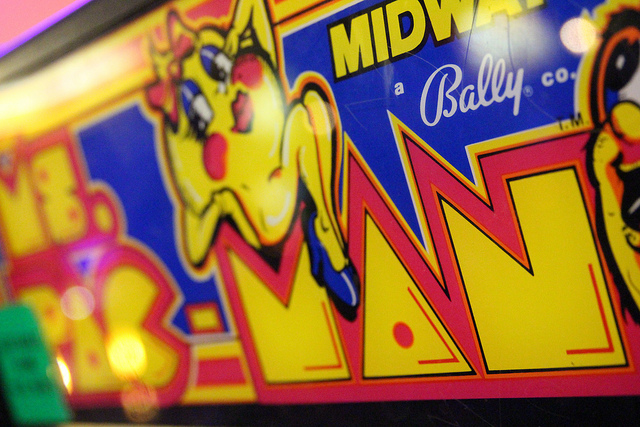Quickies
Quickies: Tits, Worshipping Atheism, and How To Be Cool (as an 80’s Gamer)

- How to be Cool (According to a Video Game Magazine From 1982) – “The four-page photo article follows ‘Art Cater’ (‘arcader,’ get it?) as he bumbles his way through a night at his local arcade.”
- “Tits” – “Of the many nicknames I’ve acquired over the years, there’s one I’m reminded of today. The name was given to me by a bully shortly after I entered the sixth grade. I had been a fat kid since elementary school, but as puberty began to kick in, parts of me started growing differently than expected. The doctors said I had gynecomastia. ‘Man boobs,’ or ‘moobs’ in the jeering parlance of our popular culture. But my bully simply called them ‘tits.’ And so this also became my name in the school hallways.”
- Bump Your ‘Becky’ Beef – “I had a conversation with my partner about how bizarre it was to see the dialogue around these tropes develop across social media platforms and among pop culture outlets. It was one of those weird moments when you’re reminded how drastically separate the Black American experience is from the rest of mainstream America.”
- Three Warning Signs That Village Atheism Is Your New Religion – “In addition to bandying about words like ‘logic’ and ‘reason,’ village atheists reflexively and freely apply the term ‘social justice warrior’ to any topic that makes them think too hard about normative beliefs they’ve grown accustomed to following. Village atheists literally belittle attempts to make the world fairer and less harmful. Compassion and empathy isn’t considered an asset to this belief system—a point of view championed under the guise of ‘objectivity’—because detachment is apparently a good thing.”
- What Is ‘Natural’ Food? A Riddle Wrapped In Notions Of Good And Evil – “Given our current attitudes, the riddle might be better described as religious. Data show that 51 percent of us shop for ‘all natural’ food – shelling out some $40 billion a year on these products. We even choose natural over organic, market analysts have found. Natural has become the non-denominational version of kosher, and orthodoxy is on the rise.”
- Harvard is finally cracking down on its exclusive, sexual assault-prone final clubs – “Moreover, the school’s influence and prestige mean that its crackdown on the final clubs — a crackdown that extends to the much less important frats at Harvard too — could set a precedent for how American universities deal with social organizations and their role in sexual assault.”





About the village atheist article.
It’s become a thing in my generation to announce how rational you are and how irrational your opponents are. I mean, obviously people have been engaged in such rhetorical tactics since forever, but the presumption of irrationality as a point in arguments is new.
To accuse people of being “illogical” when nothing in the discussion has even tried to resemble formal logic. The fall back to poorly understood logical fallacies are a common use in such constructions. A recent one paraphrase of a discussion I had: “You called donald trump racist, which is an ad hominem, thus you’re illogical.”
I’m not sure how to tackle this new trend. There are people with access to the toolbox of critical thinking, but are clearly using the tools themselves uncritically. I think it’s some kind of cargo cult argumentation, where they see effectiveness of the concept, but don’t understand how and why it’s used. I don’t know. Just had to rant.
“Village Atheist”
A good term, I’ll have to remember that.
The butthurt in that comment section is almost palpable.
That term apparently has a legacy older than this article though. It used to mean someone who let their differences from the majority define them, and cause an undue level of combativeness, i.e. the classic 2D atheist stereotype. Ironically using a bible analogy: a lone voice in the wilderness.
The author clearly intended to use the same term and capture some of its meaning, But it feels like a strained comparison.
1982. That’s funny, I’ve been thinking a lot about the video game crash recently. (partially because of the resurrection of the term “Atari Democrat” recently) Even though it’s associated with 1983, it began in 1982, really. And Atari had made many, many bonehead moves before that. (Not to mention that there were just too many consoles: Q*Bert was literally on four consoles, two of them made by Atari because nothing says awesome like competing with yourself; and four PCs.)